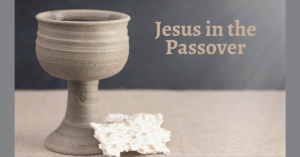Since the very beginning of time itself, the battle has not really been between good and evil but between humility and pride. When we read in Isaiah 14 about the fall of Lucifer (Satan, the deceiver, the father of lies, and the ruler of darkness), it started with his pride. He said in his heart, “I will ascend into heaven, I will exalt my throne above the stars of God, I will sit on the mount of the congregation on the farthest sides of the north; I will ascend above the heights of the clouds; I will be like the Most High.”
Satan desired to be more powerful and more exalted than God. It was pride. And that pride was his destruction. As a result, Lucifer was cast out and destroyed. Though he was full of wisdom and beauty, he was corrupted by his pride (Ezekiel 28).
Satan now works endlessly to draw us away from God into the same destruction. We may not necessarily be worshiping Satan in the end, but we won’t be worshiping God. To accomplish that, he uses our pride.
In the very beginning in the Garden of Eden, Satan used pride to draw Eve away from her direct fellowship with God. He tempted her to question God’s commands. Did God really say that was forbidden? It is as though that one question led to all sorts of other doubts in Eve’s mind, much like it does in our own minds. “Maybe you misunderstood God. Or maybe God said that but really meant something else. If God only knew how badly you wanted that fruit, surely He would understand why you ate of it.”
That is tempting in itself. We all try to justify doing something we want to do even while knowing it goes against God’s commands. However, the real temptation comes down to pride. God forbid Adam to eat the fruit of the tree of the knowledge of good and evil because in the “day that you eat of it you shall surely die.” God’s command was for Adam’s protection and his provision. But in order to receive that protection and provision, Adam had to submit to God’s authority. He had to put aside his own pride to be in control and surrender to God’s control.
In order to sway Eve away from God, Satan tempted her with pride. Satan lied to Eve by claiming she wouldn’t die by eating the fruit; he said instead, she would become like God. Now that was a temptation more than just eating a piece of fruit she hadn’t tried yet. Satan tempted Eve to desire herself over God, exactly how Satan’s fall is described in Isaiah. She would be like the Most High; she would ascend to the heavens.
Now Eve had to decide. Would she be willing to humbly submit to God’s command and refrain, or would she want to elevate herself over God and partake?
The same pride of wanting to be like God that led to Lucifer’s fall and destruction led to Eve’s destruction, as Proverbs 16:18 warns. It was her pride that ultimately led to the destruction of all mankind.
And pride is something we still struggle to shake. It’s at the root of everything we do. We label movements and marches as taking “pride” in something; take pride in who you are; take pride in whatever you do, whether good or bad.
But pride is the starting point of every sin we commit. Are we willing to submit to God’s authority, or in our pride do we assert our own authority? Do we read Scripture so we can change and grow in our holiness, or do we redefine Scripture to make it align with what we want to do? Do we say, “Not my will, Lord, but your will,” or do we just do whatever it is we want to do?
In Luke 11, the disciples asked Jesus to teach them to pray. In response, Jesus lays out what is known as the Lord’s Prayer as a model for how we are to pray. The second statement in that prayer is “Your kingdom come.” That is a pledge of fealty to a king, or like an oath of a soldier. It says that you will lay down your own selfish desires and yield to those of the king. It is the laying aside of one’s pride to follow under another authority.
When believers are struggling in persistent sin, it comes back to this issue of pride. Our pride has blinded us to the reality of our sin and the offense that we are making against our king to whom we have pledged allegiance. In those times, we need to be reminded of who our authority is and encouraged to lay down our pride to once again follow Him.
When unbelievers are struggling in unbelief, it also comes back to this issue of pride. Pride is what prevents us from finding faith in the first place. Our pride tells us we are good enough to earn our own salvation – or even good enough to not need salvation. To gain salvation, we must come to the realization we are hopelessly, horribly lost in our sin – every single one of us — and are in need of salvation. But our pride tells us, “You’re not that bad!” or “You’re a pretty good person.” Our pride prevents us from yielding to the authority of God as our king.
Yet we dare to stand in our pride and demand God accept us without any contrition of heart and, for some, without any acknowledgement of His existence at all. The battle is between pride and humility. Will you humble yourself before God and acknowledge that you don’t deserve His mercy? Will you put aside your pride to see that you can’t merit salvation on your own good works to accept the undeserving gift of grace He has given?
Jesus paints this very picture of the battle between pride and humility as He is facing the cross. While in a different garden than Eve’s, Jesus shows a different outcome of this same struggle and temptation. In the Garden of Gethsemane on the night of His betrayal, Jesus prays for there to be another way, knowing the cross that awaited Him. However, Jesus humbly submits to the will of God to go forward to His death on the cross. Even knowing death could not hold Him, He was still praying for there to be another way. But He prayed, “Not my will, but Your will.”
Throughout that night there were moments that if given over to pride Jesus could have made a very different end to the story. After Peter cut off the ear of the soldier coming to arrest Him, Jesus said, “Do you think that I cannot now pray to My Father, and He will provide Me with more than twelve legions of angels?” Out of pride for Himself, Jesus could have done that, but He humbly allowed the soldiers to arrest Him.
At any moment during His trial while the soldiers struck Him and mocked Him, Jesus out of pride could have called down those angels and demonstrated His full power and deity. He could have prophesied not just who struck Him but everything about those who struck Him. But He humbly stood silent, submitting to the will of God. As He hung on the cross, the soldiers and Pharisees mocked Him and dared Him to save Himself. Out of pride He could have saved Himself from the cross and destroyed those who mocked Him. But in His humility, He gave up His spirit into the Father’s hand.
Jesus, the Son of God being God Himself and the only one who has the right to be proud, humbly submitted Himself to God’s authority. Yet man, who has no right to make demands because he is covered up with sin, stands in pride shaking his fist at God as though he deserves something more. But man has the opportunity in humility to acknowledge his sin and seek forgiveness to gain mercy that he doesn’t deserve and receive grace which he did not earn. Pride vs. humility. Which choice will you make?
Have this mind among yourselves, which is yours in Christ Jesus, who, though he was in the form of God, did not count equality with God a thing to be grasped, but emptied himself, by taking the form of a servant, being born in the likeness of men. And being found in human form, he humbled himself by becoming obedient to the point of death, even death on a cross. Therefore God has highly exalted him and bestowed on him the name that is above every name, so that at the name of Jesus every knee should bow, in heaven and on earth and under the earth, and every tongue confess that Jesus Christ is Lord, to the glory of God the Father.
Philippians 2:5-11





2 thoughts on “The Temptation of Pride”
“But man has the opportunity in humility to acknowledge his sin and seek forgiveness to gain mercy that he doesn’t deserve and receive grace which he did not earn. Pride vs. humility. Which choice will you make?”
Very powerful words! Thank you for your thoughtful and challenging article.
Gilbert
Powerful reminder!
Pride can seep into even the best ministries in the most unusual ways. One way I see it happening a lot right now, including in the churches, is in the area of virtue signalling. This is a way for us to be conformed to the world’s opinions and desires, while holding ourselves up as more “virtuous” than those who do not hold the same “virtue” (often NOT a true virtue).
It might also explain why so many of the sermons these days are sugar-coated. The desire to be liked by others, while a univeral human instinct, is not actually a virtue in the Bible – Jesus said we will almost certainly make enemies and be hated by the world – IF we are following Him that is.
This is a really healthy reminder for us all – even the best intentioned. And that graphic you provide at the beginning of the article is absolutely heart-piercing. Look at it carefully. Thank you again.
Comments are closed.